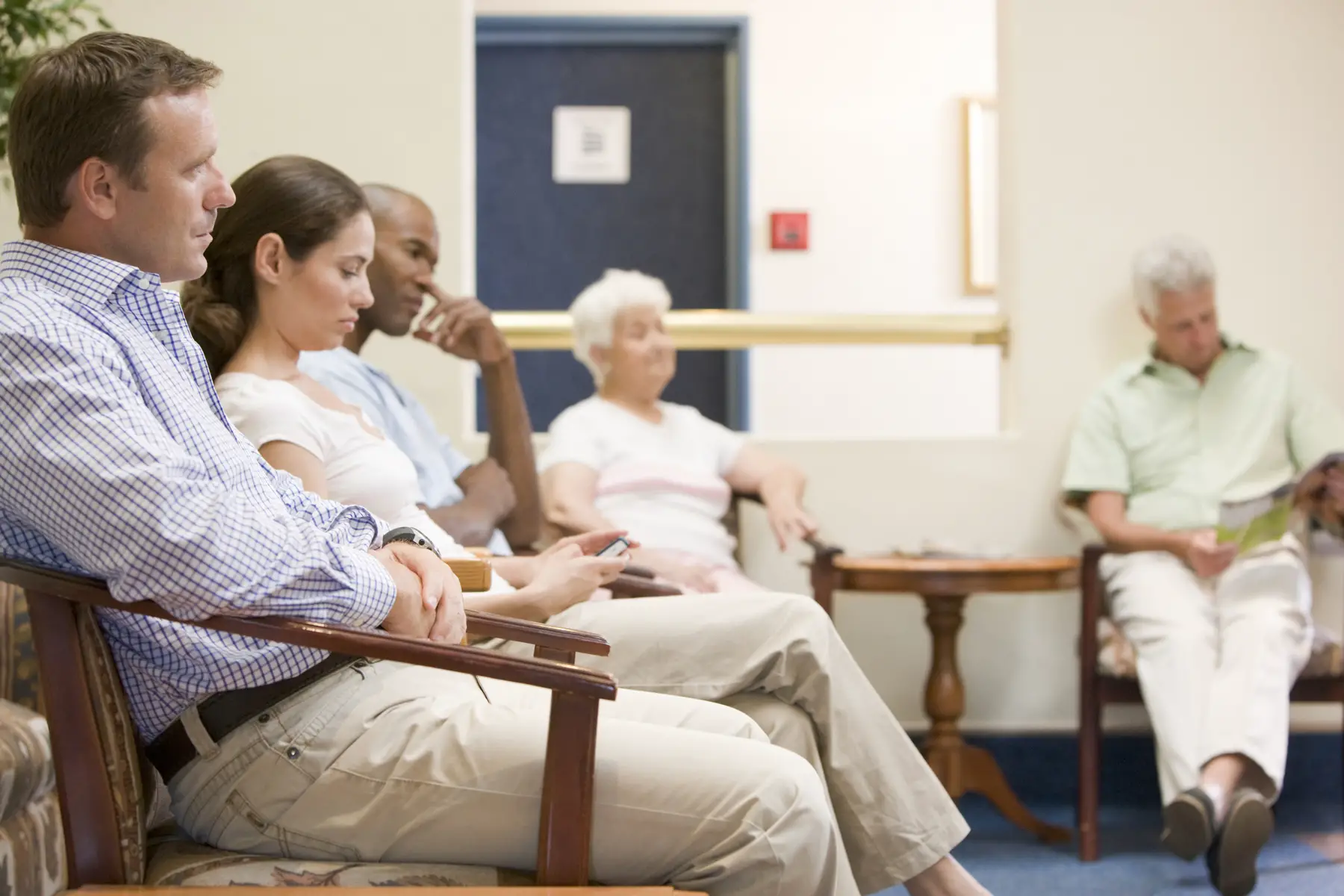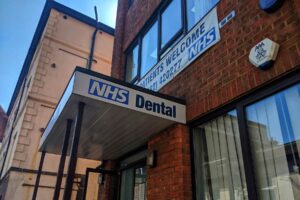Sexual health is an important part of physical and mental well-being. And expats moving to the UK will be happy to learn that the National Health Service (NHS) covers sexual health. Indeed, the NHS provides free access to everything from contraception and treatment for STIs to sexual health advice, and more. Furthermore, the services on offer are relatively inclusive and extensive, and a number of charities also provide advice and support for those who need it.
To help you understand sexual healthcare in the UK and discover what’s on offer, this article provides the following information:
- Attitudes towards sex and sexuality in the UK
- Accessing sexual health services
- Insurance for sexual healthcare
- Contraception
- Pregnancy and childbirth
- Abortion in the UK
- STIs and STDs
- Erectile dysfunction treatment
- Feminine hygiene products
- Cancer screenings in the UK
- Services dealing with sexual problems in the UK
- Services dealing with sexual assault or abuse
- Young people’s sexual health in the UK
- LGBT+ sexual health in the UK
- Useful resources
Cigna Global
Want access to the best private medical services in the UK? Speak to the healthcare professionals at Cigna Global today and find a policy that’s right for you. Take advantage of their global network of doctors, specialists, therapists and more with coverage tailor-made for you and your family. If you’re starting a new life in the UK, get peace of mind with Cigna Global.
Attitudes towards sex and sexuality in the UK
When it comes to attitudes towards sex and sexuality, the UK takes a fairly liberal stance. Indeed, while heterosexual and monogamous relationships are generally viewed as the conventional norm across the country, there is an increasing acceptance of different sexualities, sexual relations, and attitudes towards gender, as shown in The British Social Attitudes report.
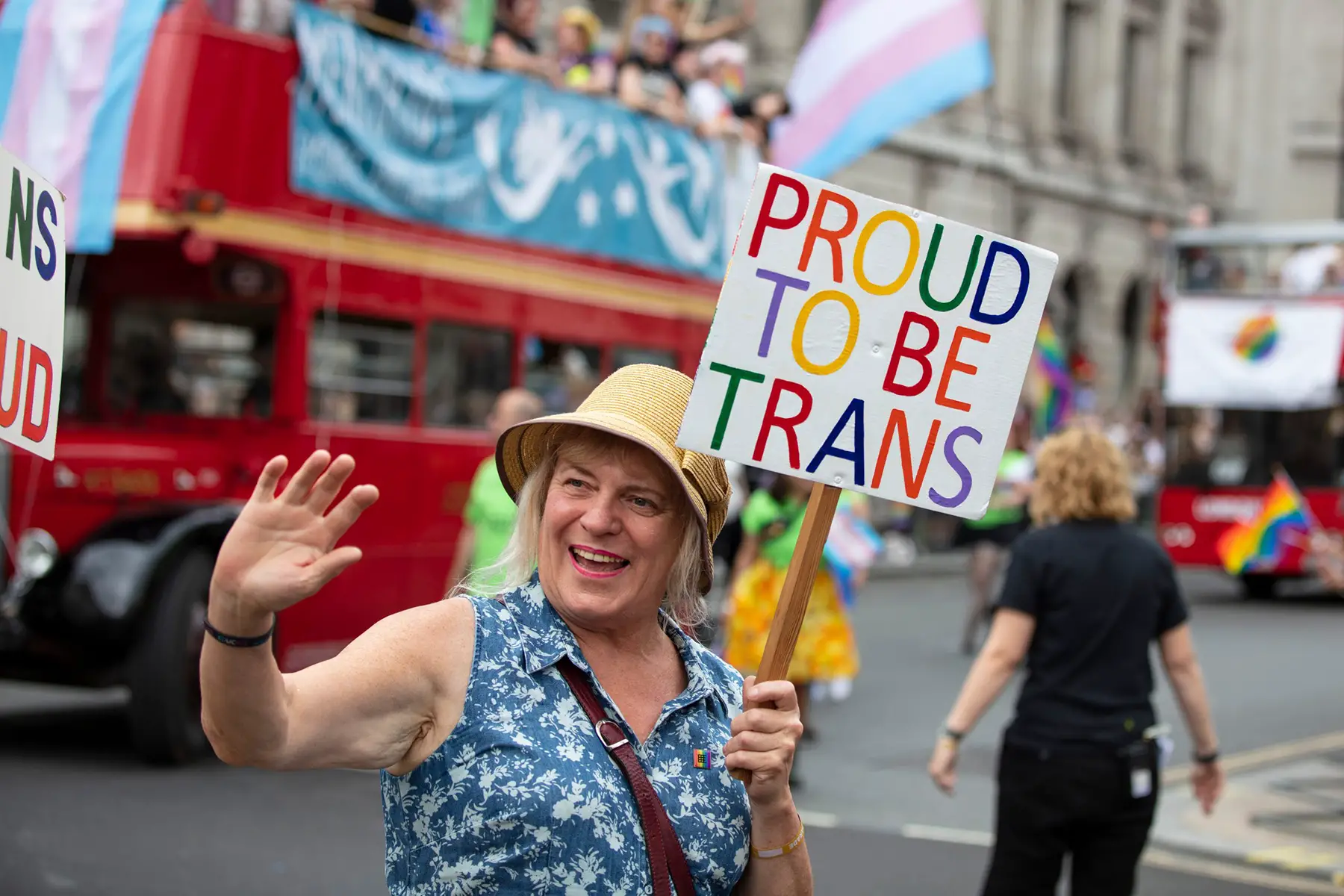
Although this may be true, this liberalization has somewhat slowed in recent years. However, despite suggestions that the government is not supportive of LGBT+ and trans rights, the general UK population remains more accepting and open. This is also apparent in the rise in the number of same-sex couples living together and tying the knot. This is also partly due to new legislation in 2014 that allows same-sex marriages.
Interestingly, having children in the UK is not as popular as it once was, as shown by data released by the Office for National Statistics (ONS). Similarly, marriage rates among heterosexual couples are also decreasing across the UK and in 2018, with a record low in 2018. Conversely, there were 117,723 divorces of opposite-sex couples in the UK in 2019; representing an increase of 17.4% from 100,241 in 2018.
Accessing sexual health services
Thankfully, healthcare in the UK is free to all residents, through the National Health Service (NHS). However, since 2015, those entering the UK from outside of the EU, European Economic Area, and Switzerland for more than six months, must pay a health surcharge to access NHS services.
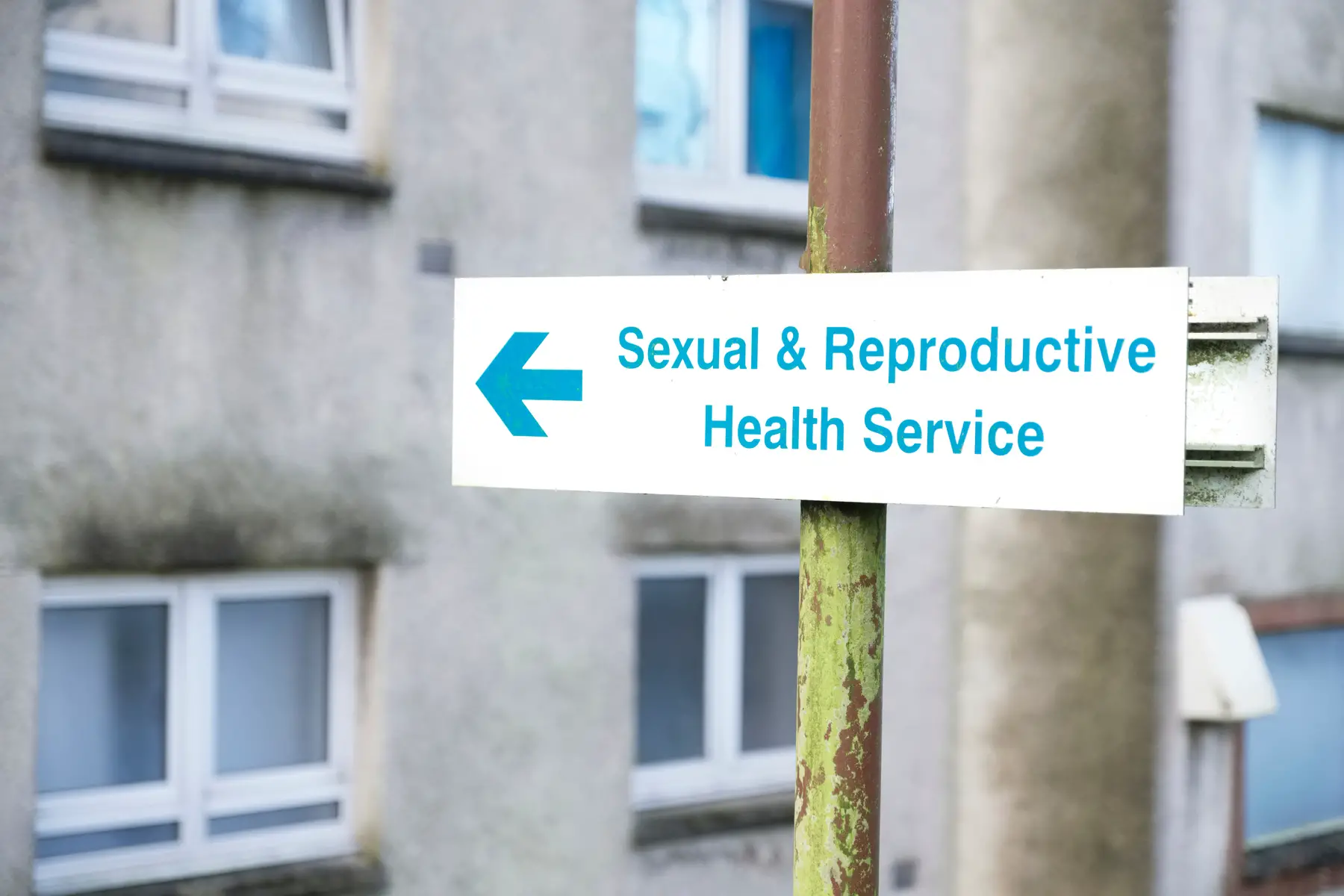
Public sexual health services are provided by GPs, sexual health clinics (also known as family planning, genitourinary medicine, GUM, or sexual and reproductive health clinics), pharmacies, and some youth services. If you are not sure which service is right for you, you can call NHS 111, and they will be able to advise you. If you have any particular access requirements, or if English is not your first language, you can also speak to the staff at the clinic or service provider before visiting.
In addition to the NHS, private sexual health clinics can offer STI testing and treatments. Furthermore, many charities in the UK focus on specialized sexual health and education.
Insurance for sexual healthcare
The NHS provides necessary sexual healthcare, including contraception, for free in the UK. However, waiting lists can be long and if you want a greater choice in services, you might want to consider arranging private health insurance.
Fortunately, there are a number of private health insurance providers in the UK, which offer a range of policies. Naturally, premiums depend on your level of coverage, lifestyle, age, and pre-existing medical conditions.
Some of the largest health insurance companies in the UK include:
Healthcare plans usually operate on an excess basis; meaning you will need to pay a proportion of the cost when you need to use your insurance. Notably, it is also possible to pay for private healthcare on a one-off basis, should you need a specific type of treatment or an operation that has a very long waiting time on the NHS. However, be careful, as this option could cost you thousands of pounds depending on the treatment you require.
You can read more about this in our guide to health insurance in the UK.
Contraception
A range of contraception is widely available for free to everyone in the UK, including those under the age of 16. For the most part, contraception is accessible through your GP, community contraception practices, sexual health clinics, some young people’s services, and GUM clinics. The most widely used form of contraception in the UK is the birth control pill, followed closely by the male condom.
Contraception options available in the UK
- Male condoms – these are free in some instances, and available to buy from supermarkets, pharmacies, and smaller corner stores for around £6 to £20 a box (depending on the brand)
- Female condoms – these are generally not as readily available as male condoms. However, you can ask for free ones from sexual health services or purchase them from pharmacies, websites, and supermarkets. Just make sure they have the safety European CE mark or British BSI Kitemark.
- A combined contraceptive pill – often just called ‘the pill’, this is available for women through the NHS
- The progestogen-only pill – another free oral contraceptive that is available for women through the NHS
- Caps or diaphragms – used with spermicide, these are barrier contraceptives for women which are available through all sexual health services in the UK
- Nexplanon – this is a hormonal contraceptive implant for women. A doctor or nurse inserts it and it lasts for three years. The implant is provided for free by most sexual health clinics and GPs in the country.
- The contraceptive injection – this is a free hormonal option for women; the most common injection in the UK is Depo-Provera which lasts for 13 weeks
- An Intrauterine device (IUD or coil or copper coil) – also free, this is a plastic and copper device that a doctor or nurse inserts into a woman’s womb
- Intrauterine system’s (IUS) – free on the NHS, these are plastic devices that release the hormone progestogen into a woman’s womb to prevent pregnancy; they last for three to five years
- The contraceptive patch (Evra) – this is another hormonal contraception for women in the UK. It is prescription-based and is given for a year at a time once you have had it with no issues.
- The NuvaRing (vaginal ring) – a hormonal contraceptive that a doctor places inside the vagina and which lasts for 21 days
- Vasectomy (male sterilization) and female sterilization – these are permanent options for contraception. Both procedures are available for free through the NHS, but you can also access them privately. Notably, both procedures are by all means reversible, at a cost.
Emergency contraception
Emergency contraception is available to women in the UK who can either use the IUD (coil) or the emergency contraceptive pill (or the morning-after pill). A doctor or nurse can fit you with an IUD within five days of having unprotected sex. This is the most effective type of emergency contraception in the UK and is available for free from sexual health services and through Brook centers. Following its insertion, women can keep the IUD as a regular form of contraception.
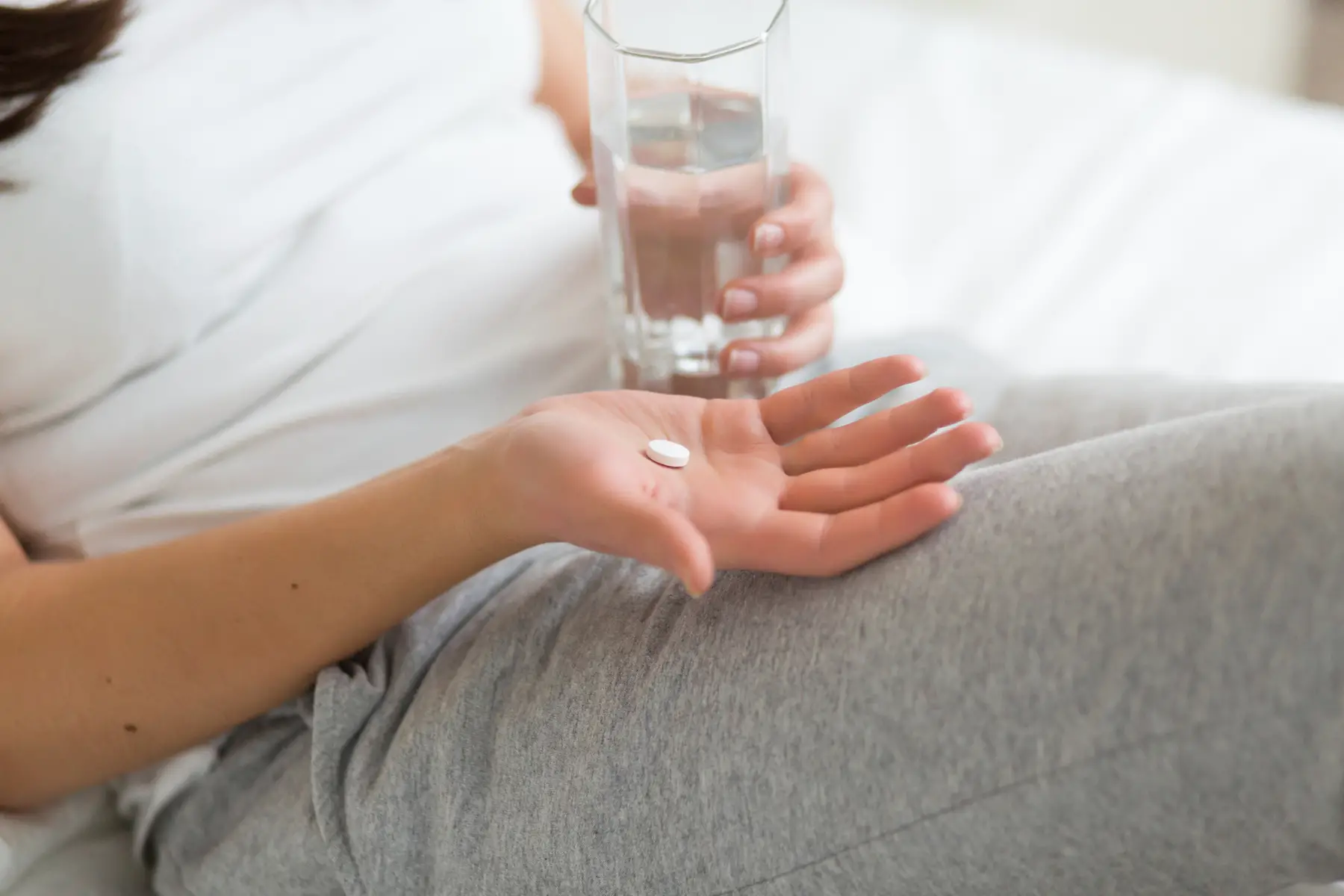
The two emergency contraception pills offered in the UK are Levonelle and EllaOne. Both are available for free with a prescription following a phone consultation. You can contact your GP or any sexual health service as soon as possible after having unprotected sex, and you will be able to pick up the pill from a pharmacy. You can also purchase the morning-after pill without a prescription from pharmacies or private sexual health clinics for £25 to £35.
Family planning services
Fertility awareness practitioners work both privately and within NHS clinics. They can help women and couples build awareness of natural family planning and become aware of fertility cycles in order to plan or avoid pregnancy. Fertility UK can help direct you to a local fertility awareness practitioner.
Pregnancy and childbirth
The number of births in the UK has decreased in recent years, and women are choosing to have children later in life. The NHS offers free support and care throughout pregnancy and childbirth in the UK. And most expats will have access to the NHS and its maternity and birth care services.
Abortion in the UK
Abortion is legal under most circumstances in England, Wales, and Scotland, based on the Abortion Act 1967. It can legally be carried out before 24 weeks of pregnancy and after 24 weeks in certain circumstances; for example, if the mother’s life is at risk or the child would be born with a severe disability. Only an NHS hospital or a licensed clinic can carry out an abortion, and these are usually available free of charge on the NHS.
Abortion was illegal in Northern Ireland until 2019 when laws liberalized and the act itself decriminalized. That said, changes in the law only allow abortion during the first twelve weeks of pregnancy, and later in cases where the pregnant woman’s life or health is at risk, or in the cases of a fatal fetal abnormality. However, women who are more than twelve weeks pregnant can travel to England for safe and legal abortion care.
STIs and STDs
The most common STIs diagnosed in the UK are chlamydia, gonorrhea, and genital warts. Although there is a general downward trend of diagnosis of STIs and STDs across the country, overall rates remain relatively high.
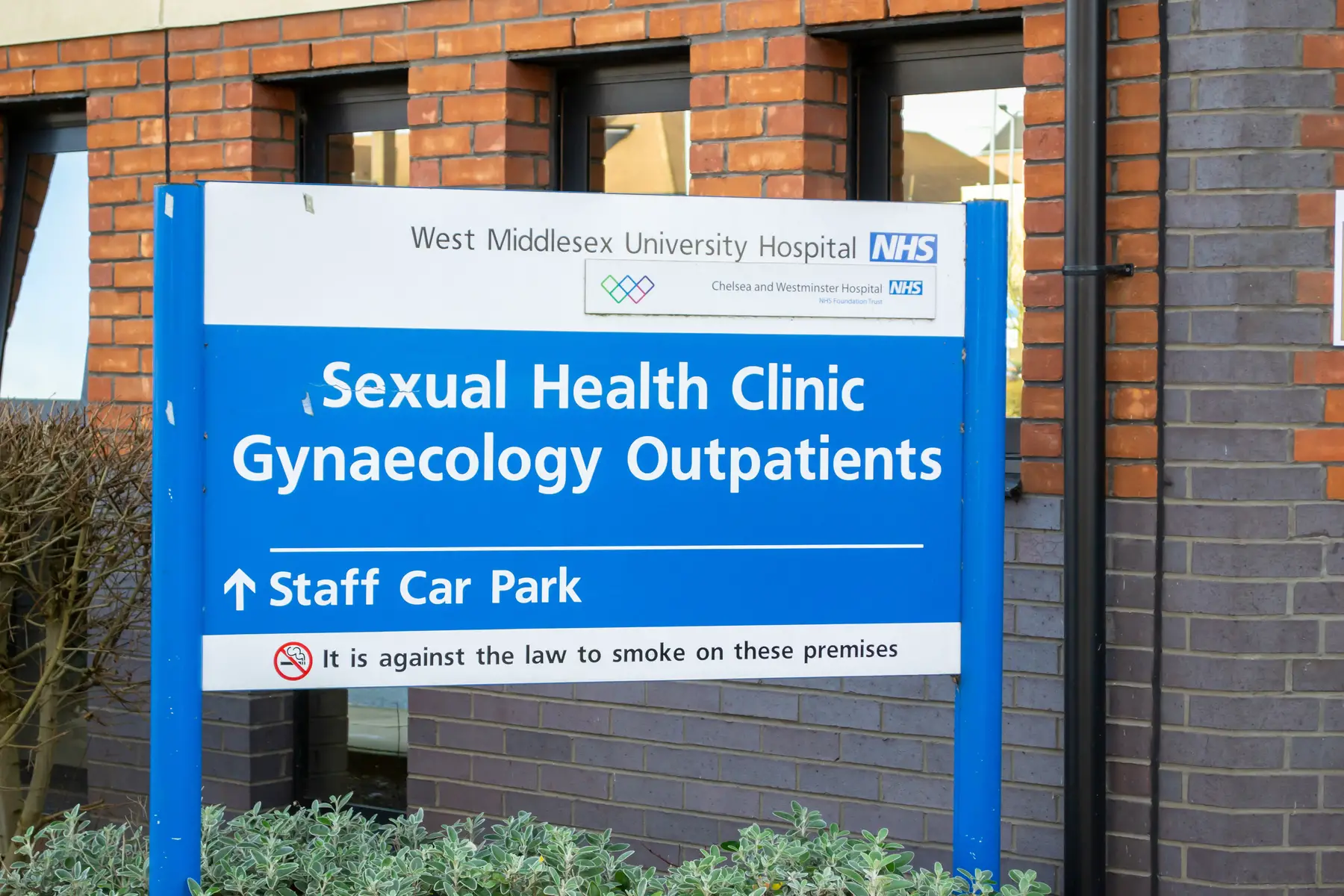
If you or your partner have symptoms of any STIs or STDs or would like to have a test, you can contact your local sexual health clinic. Notably, if you consult your GP about these concerns, they will usually refer you to a sexual health clinic. You are able to remain anonymous when visiting a clinic. But if you don’t want to visit a clinic, you can obtain free STI home testing kits on the high street, online, or through the NHS.
Treatments for STIs and STDs in the UK
The NHS covers a wide range of treatments for free, including:
- Chlamydia – 95% of people will be cured if antibiotics are taken correctly
- Gonorrhea – an antibiotic injection followed by further antibiotic tablets
- Genital herpes – there is no cure for this STI, and symptoms often clear up on their own. However, if it is your first experience of genital herpes, you may be prescribed antiviral medicine or cream to help with the pain. Importantly, herpes can be more serious for those with HIV, therefore, if you have this diagnosis, you will be referred to a GUM specialist.
- Syphilis – this doesn’t go away on its own and can become a serious issue if not treated with antibiotics
- Pubic lice (crabs) – you can treat this at home with insecticide cream, lotion, or shampoo from your GP or pharmacist. Further tests for other STIs are advisable as well.
- Trichomoniasis – you can treat this with a course of antibiotics
- Genital warts – treatment is prescribed by a doctor, and can consist of cream or liquid, surgery, or freezing to remove the warts
- Mycoplasma genitalium (MG or Mgen) – there are often no symptoms of MG, however, if left untreated, it can cause further issues. Treatment is typically a prescription of antibiotics.
- Hepatitis – symptoms are managed by antiviral medication, although there is no treatment for hepatitis directly
Sexual health resources in the UK
The NHS website provides many helpful resources that offer support and advice regarding sexual health. If you are seeking advice or support, you can call the national sexual health helpline for free on 0300 123 7123. They can advise you about any sexual health queries you have, including if you feel you have been pressured into sex. Calls are always treated with confidence and sensitivity.
Some other helpful organizations to know about for support, guidance, and confidentiality include:
HIV/AIDS in the UK
There were approximately 106,890 people living with HIV in the UK in 2019. However, around 1 in 16 people are undiagnosed and unaware that they are HIV positive. The highest rates of HIV in the UK are in London where 37% of new diagnoses were made in 2020.
It is important to seek medical attention as soon as possible if you think you have been exposed to HIV. Testing services are provided by your GP, through sexual health clinics, and clinics run by charities. Importantly, early diagnosis can lead to a greater chance of controlling the virus due to earlier treatment. You will be referred to a specialist HIV clinic for further tests and treatment options if you receive a positive result during testing.
While HIV is not curable, treatment aims to support an undetectable viral load in the body. In the UK, this treatment consists of antiretroviral medicines which are tablets taken daily to stop the virus from replicating in the body. There are over 25 anti-HIV drugs available in the UK and each class works against HIV in a particular way. The vast majority of patients will be prescribed a fixed-dose combination pill.
The UK currently has no restrictions for entry for those diagnosed with HIV.
Erectile dysfunction treatment
Sexual health clinics and your GP are able to support those with erectile dysfunction. There are many different causes and, therefore, treatment varies depending on this. Medicines such as Viagra (sildenafil) are often used in the UK. You can buy Viagra over the counter at pharmacies or online after consultation with a pharmacist. Other medicines available include tadalafil, vardenafil, and avanafil, although these are prescription-only medicines.
Feminine hygiene products
UK supermarkets, corner shops, and pharmacies sell a wide range of female sanitary items. If you prefer to use reusable or sustainable products, there is also an array of options available online and in stores.
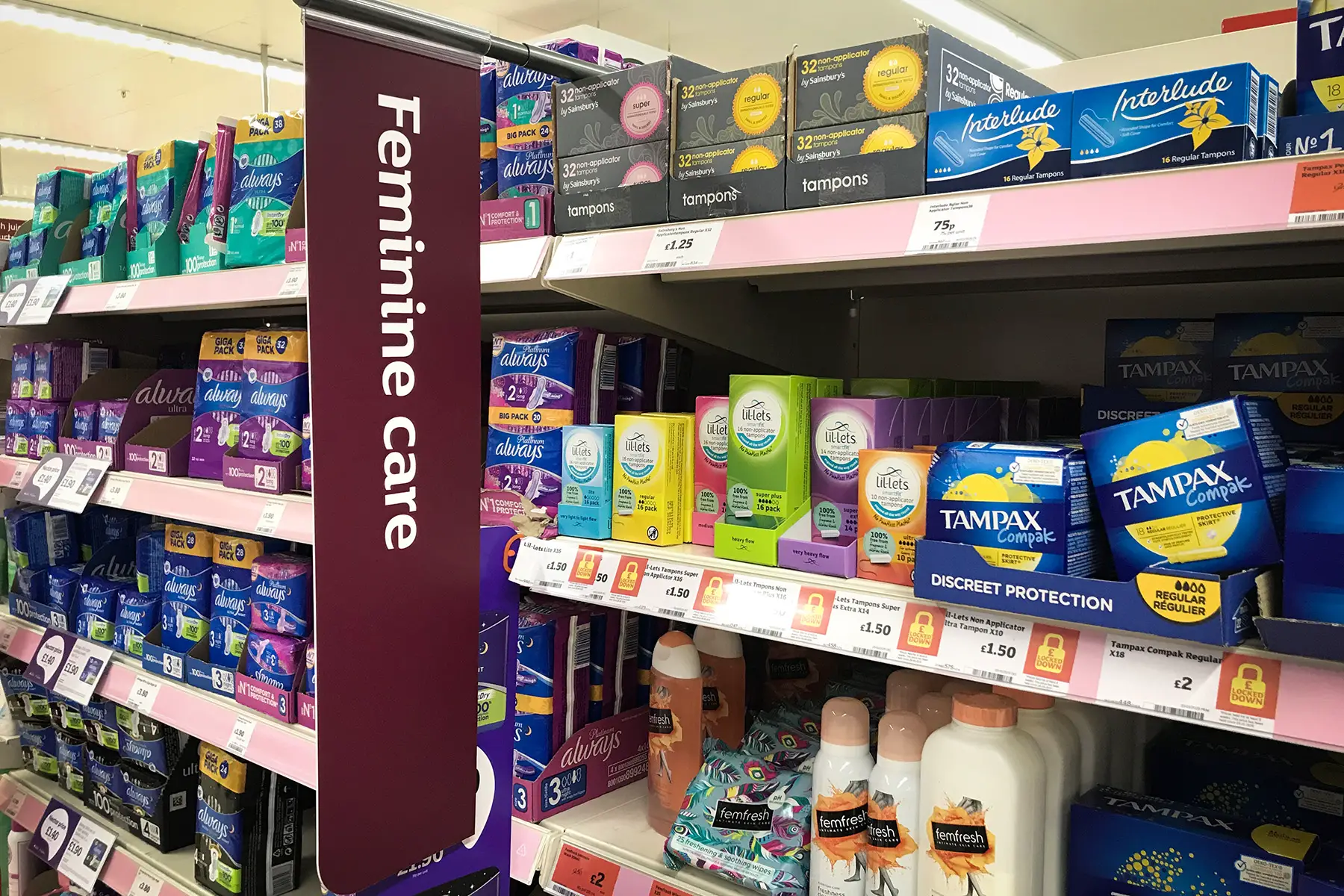
Sanitary items can cost from around 23p for a box of ten sanitary towels at the supermarket Tesco, to £3 from the high-street pharmacy Boots. In 2021, the UK abolished the ‘tampon tax’, although these savings are not always seen by the customer.
Private health insurance doesn’t provide female hygiene products and free sanitary products are not widely available throughout the UK. However, in 2020, Scotland became the first country in the world to make these products free for all. A period product scheme is also in place within schools across the UK, providing free sanitary products to learners. Further to this, charities support those experiencing period poverty in the UK.
Cancer screenings in the UK
Cancer screenings differ slightly across England, Scotland, Wales, and Northern Ireland. The UK National Screening Committee (UK NSC) advises the NHS in each country in the UK, on which screening programs to offer. However, all four countries offer screening for bowel cancer, breast cancer, and cervical cancer through the NHS.
Screening for cervical cancer
Cervical cancer rates across the UK have been decreasing since the early 1990s. There are around 3,200 new cases annually, and it is most prominently diagnosed in females between 30 and 34 years of age. Cervical screening is an important part of women’s healthcare in the UK and the NHS provides it free of charge. All women aged between 25 and 49, and those with a cervix such as trans men, are invited to have a smear test by letter every three years. And once you reach 50, you will be invited every five years, until you turn 64.
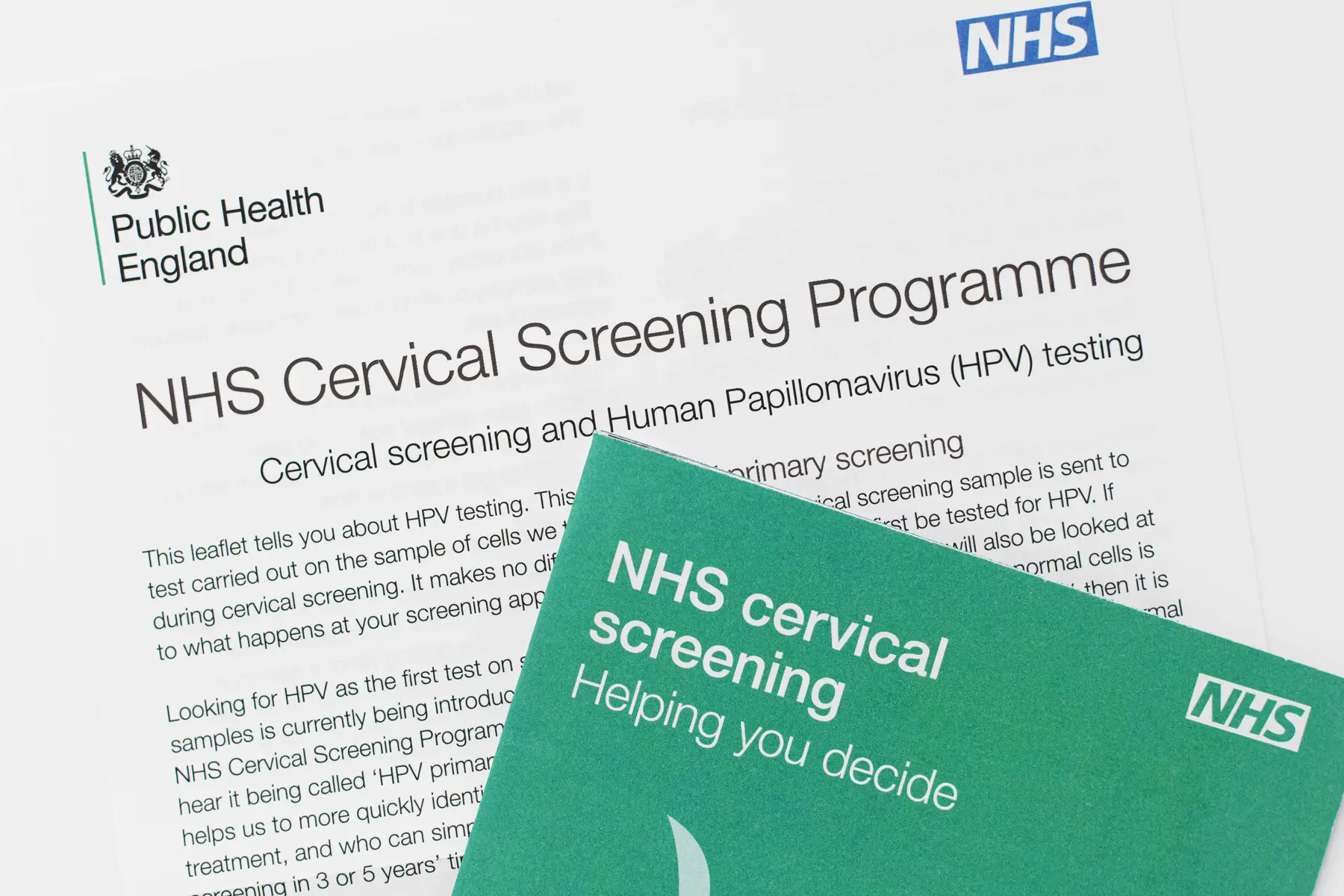
Screening is often done at your GP clinic, but you can also book a smear test at some sexual health clinics. A female doctor will usually complete the screening which involves having a small sample of cells taken from the cervix. High-risk HPVs are checked for and you will usually receive your results with a letter around two weeks after the screening. If there is no presence of HPV in the cells, you will not require further tests. Otherwise, the letter will explain any next steps which may be necessary.
Screening for breast cancer
Around 1 in 7 women are diagnosed with breast cancer in the UK during their lifetime, and 23% of these cases are preventable. Fortunately, rates of survival for those diagnosed with breast cancer have doubled in the last 40 years across the UK, and 76% of women diagnosed in England survive ten years or longer.
Breast cancer screening involves a mammogram, which is an x-ray of the breast. You must be registered as a female with a GP to automatically receive an invitation for a screening between the ages of 50 and 53. You will then receive an invite every three years, until the age of 71. If you have not received an invitation letter, you can contact your local breast screening service to access a screening. However, if you are concerned about any symptoms of breast cancer, you should speak with your GP as soon as possible.
Mammogram appointments take approximately 30 minutes and are usually conducted by one or two female mammographers. You will need to undress from the waist up, and private changing rooms are available for this. If you are trans or non-binary, you can speak with staff if you are uncomfortable in the waiting room before your screening. You will usually receive the results in the post within two weeks and will know if you require further tests.
Screening for ovarian cancer
Ovarian cancer is the 6th most common cancer for women in the UK, and there are around 7,500 new cases each year. There are no national screening programs in the UK as early testing does not reliably pick up signs of ovarian cancer. However, if you are concerned about symptoms of ovarian cancer, you should speak with your GP who will carry out some initial tests.
Some private healthcare providers offer ovarian cancer screenings and will run different tests including (some, not all):
- a vaginal or internal examination
- MRI
- CT scan
- blood test
- ultrasound
- laparoscopy
- x-ray
- abdominal fluid aspiration
Screening for prostate cancer
Prostate cancer is the most common cancer for men in the UK. Annually, there are approximately 52,300 new cases, and about 8 in 10 men diagnosed with prostate cancer survive for ten years or more.
There are no national screening programs for prostate cancer in the UK. This is due to the lack of tests that can reliably detect it early on. However, it is possible to check for high levels of Prostate Specific Antigen (PSA), which can be a sign of cancer. Therefore, males over the age of 50 can ask their GP for a PSA test.
You should contact your GP if you have any prostate cancer symptoms.
Screening for testicular cancer
Testicular cancer accounts for 1% of new cancer cases in males in the UK each year. In England, almost all men diagnosed with testicular cancer aged 15 to 49 survive for five years or more.
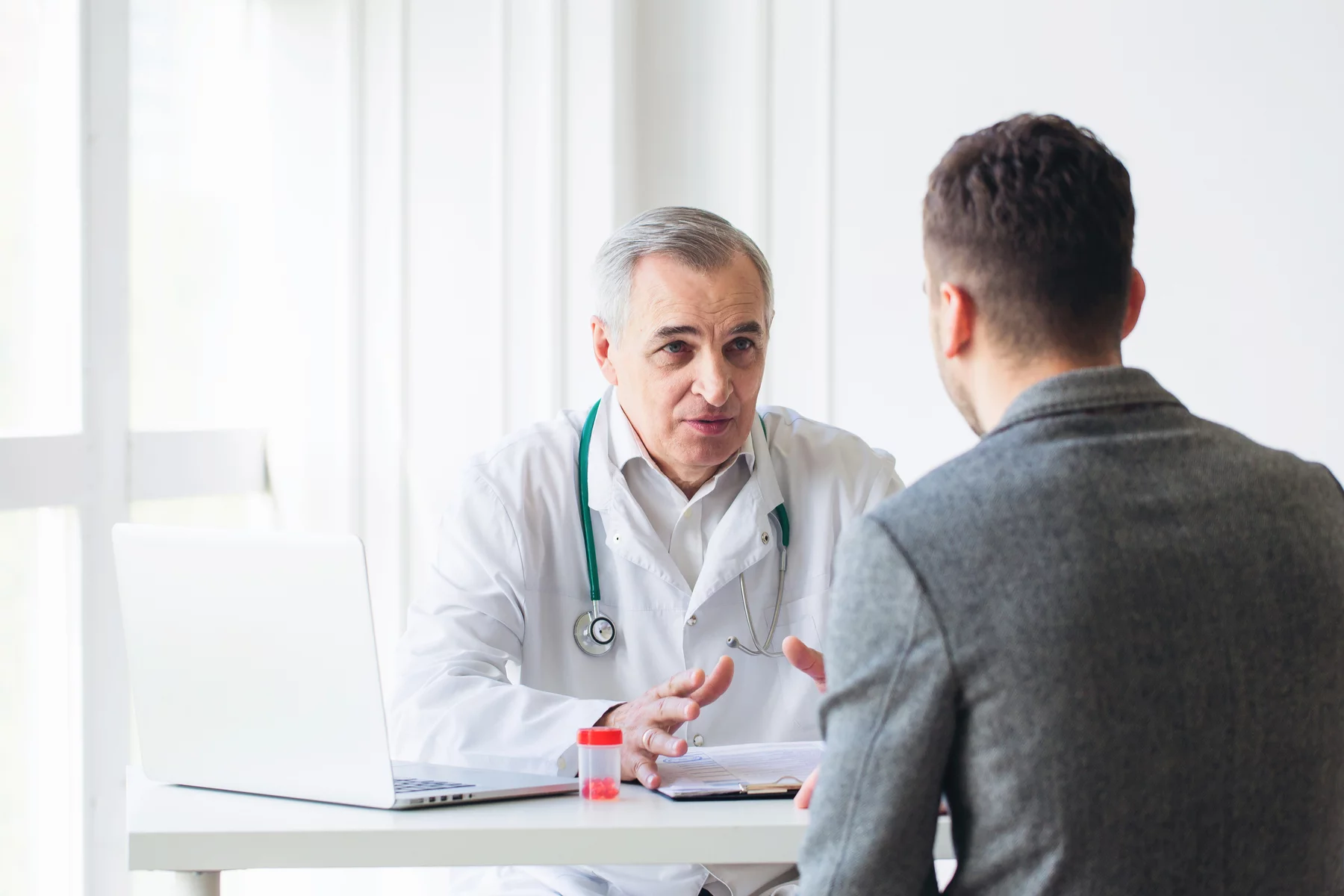
There is no national screening program for testicular cancer in the UK. Therefore, it is advisable for men to check their testicles regularly so they are aware of what feels normal for them. If there are changes, including swelling or lumps in one testicle, you should call your GP.
Screening for penile cancer
Penile cancer is rare and accounts for less than 1% of cancer diagnoses in males each year in the UK. Survival rates of penile cancer are 68% (for ten years or more after diagnosis). There are no national screening programs, which is partly due to the rarity of this type of cancer.
Finding cancer early on can make it more treatable, so if you have symptoms of penile cancer, you should contact your GP as soon as possible. A biopsy through the NHS is the main way to test for penile cancer in the UK. Following this, your results should be available within a few weeks.
Services dealing with sexual problems in the UK
There are several options when it comes to seeking support for sexual problems like erectile dysfunction or reduced libido. You can speak with your pharmacist about general problems and obtain over-the-counter medications. However, for further treatment or more specialized advice, you can speak to your GP.
Mental health can affect sexual problems and vice versa. Therefore, your GP can refer you to a therapist or you can see one privately. Just make sure that any therapist you visit has accreditation from the College of Sexual and Relationship Therapists (COSRT). Relate is the UK’s biggest provider of relationship support, including advice and sex therapy. Each local branch sets its own costs which will vary depending on your needs.
Services dealing with sexual assault or abuse
The UK legally defines sexual assault as “intentionally touching another person in a sexual manner, without that person’s consent or understanding”.

Safeline is a specialist charity that works to support those who have experienced sexual assault, no matter their gender or sex. It offers a helpline and online support services. Meanwhile, Rape Crisis works across England and Wales and provides services for women and girls. Local crisis centers are accessible at any time in England, Wales, Scotland, and Northern Ireland. These support channels are free of charge, confidential, and offer emotional and practical support as well as advocacy.
Reporting sexual abuse or assault
England and Wales
Here are some key contact numbers and websites where you can report sexual abuse and seek help:
- Call 999 to report the crime to the police as soon as possible or if you are still in immediate danger
- Call 101 or report online
- Some areas have Sexual Assault Referral Centres (SARCs) if you don’t wish to contact the police
- Rape Crisis (for women only) and Victim Support (for men and women) also provide support with this and won’t force you to report the assault to the police if you don’t want to
Scotland
- Call 999 to report the crime to the police as soon as possible or if you are in immediate danger
- Call 101 or contact your local police station
- There are support organizations for men and women if you don’t want to report it to the police
Northern Ireland
- Call 999 to report the crime to the police as soon as possible, especially if you are still in immediate danger or hurt
- Call 101 to report a non-emergency crime
- The Rowan Sexual Assault Referral Centre (SARC) provides professional support services and you can report an assault to them if you don’t want to contact the police
It is entirely your choice whether to report a crime to the police. However, if you do, it is important to as soon as possible after the incident. It is also advisable to keep any clothes you were wearing unwashed for possible evidence and to try not to shower or bathe. But whether or not you wish to report a sexual assault or abuse, it is important to seek medical attention to treat any injuries and check for STIs, STDs, or possible pregnancy.
If you have any concerns regarding your own thoughts or behavior, or the behavior of someone else close to you regarding child sexual assault or abuse, you can contact Stop It Now! by telephoning 0808 1000 900 or emailing [email protected].
Young people’s sexual health in the UK
Sex education
Sex and relationship education in schools is a legal requirement in the UK. However, schools that don’t teach the national curriculum, such as academies, don’t have to follow this.
Generally speaking, relationship education starts at age three and continues throughout primary school. Children learn about an array of foundational subjects including how to identify safe and unsafe situations and people, puberty, and the appropriateness of films and other media.

Children further explore sex education at secondary school. This includes sex and law, safe sex, healthy relationships (including sexual relationships), exploring sex and gender stereotypes, contraception, sexual health, and recognizing abuse.
While some sections of the sex and relationship education curriculum are compulsory for all students, parents can withdraw their children from some topics covered. All schools must have a written policy on sex education which they must make available for parents for free.
There are also a number of charities and organizations that focus on sex education and sexual health for young people. Big Talk Education, for instance, offers support and helplines for parents wanting to talk about topics relating to sex education and any concerns they might have.
Sexual health service for youth in the UK
Teen pregnancy rates in the UK are decreasing, and in 2018, there were just over 51,000 teen conceptions; down from over 100,000 in 2007. However, STIs are relatively high in young people. In fact, a case of chlamydia or gonorrhea is diagnosed in a young person every four minutes in England.
The NHS provides local sexual health services for young people that offer advice and medical support for free. Brook is the only national charity that provides clinical sexual health services, as well as advice and support, for young people.
LGBT+ sexual health in the UK
Same-sex relationships
2017 marked 50 years since the decriminalization of homosexuality in the UK, leading to the banning of discrimination based on sexual orientation in 2007 and the legalization of gay marriage in 2014. There is a growing acceptance and recognition of people from the LGBT+ community as well as same-sex relationships.
You will find diverse LGBT+ cultures in the UK and there are multiple organizations and charities that encourage, advocate for, and support these communities. For instance, Opening Doors is a charity that works specifically to support those who are over 50 years of age and identify as part of the LGBT+ community. It provides events, information, and activities, mostly in London, which can help to create connections with others of a similar age.
Sexual health for the LGBT+ community
There are an array of sexual health services for the LGBT+ community in the UK. This includes support for HIV prevention and treatment, gender confirmation, and general LGBT+ sexual health advice.
Useful resources
- National Health Service (NHS) – provides medical advice and information about sexual health services in the UK
- Brook – the only national charity that provides clinical services and advice for young people
- SH:24 – provides sexual health support 24/7, including free sexual health home tests
- Sexwise – an organization that is part of The Department of Health and Social Care’s program to provide sexual and productive health information across England
- Terrence Higgins Trust – provides information about HIV and sexual health services as well as advice
- Stonewall – offers LGBT+ support, information, and advocacy
- Getting it on – provides information and services for 13 to 19-year-olds



